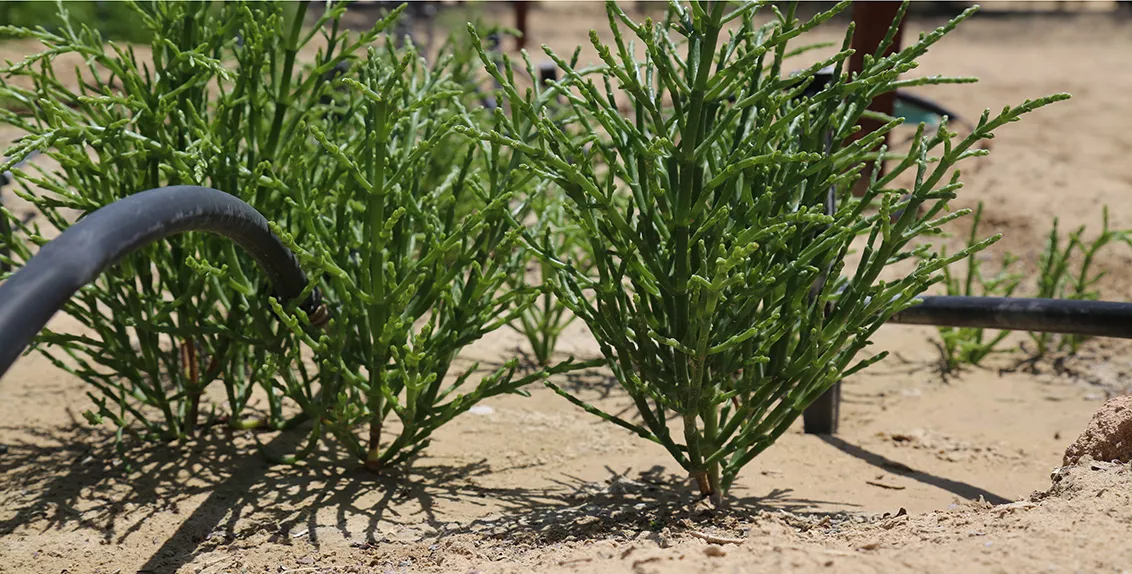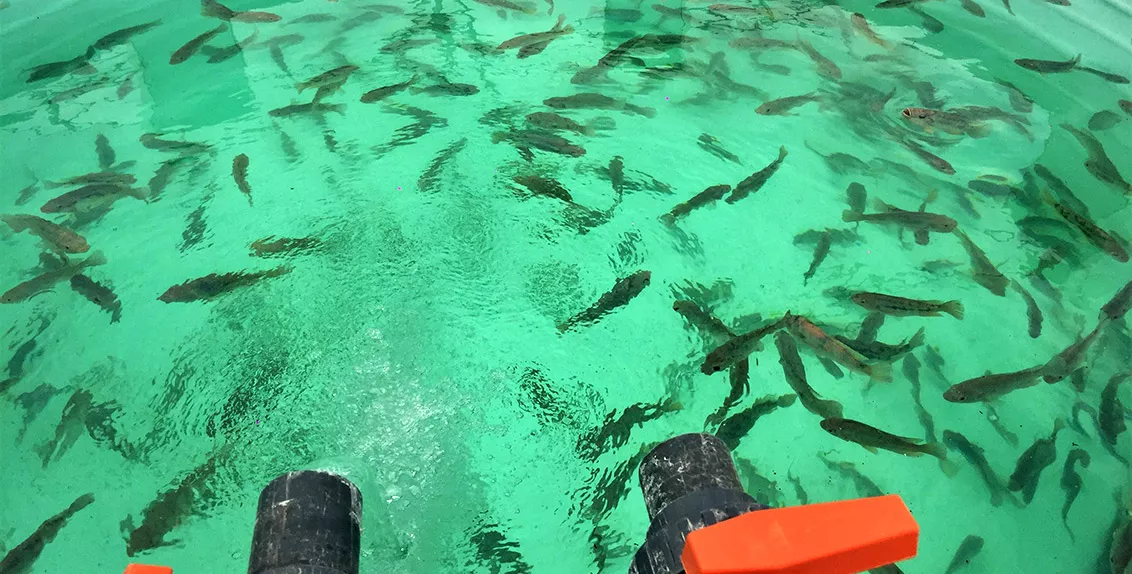Farmers in Abu Dhabi start using reject brine to grow fish, halophyte
15 January 2020
The International Center for Biosaline Agriculture (ICBA) is helping a group of farmers in Al Khatim and Al Khazna in the emirate of Abu Dhabi, the UAE, to utilize reject brine for cultivating fish and a halophytic (salt-loving) plant called Salicornia.
This work is part of a project supported by the Expo 2020 Dubai’s Expo Live Innovation Impact Grant Program and is conducted in collaboration with the Abu Dhabi Agriculture and Food Safety Authority (ADAFSA), the Environment Agency – Abu Dhabi (EAD), and the Khalifa Fund for Enterprise Development (KFED).
Under the project, ICBA is providing eight farmers with technical support in preparing land and irrigation systems to cultivate Salicornia, as well as marketing the crop. The eight farms have various levels of brine salinity ranging from 15,000 to 20,000 parts per million.
For their part, ADAFSA and KFED are supporting the project by carrying out training programs and field days for farm owners and workers to improve their knowledge about the use of saline water for farming fish and halophytes. And EAD is conducting environmental studies on the use of reject brine from desalination and its impact on soil and groundwater.
All farms are currently growing Salicornia, and four of them are equipped with an inland modular farming system, in which reject brine is used for raising tilapia, and aquaculture effluents for irrigating Salicornia.
An agreement in support of the project was recently signed by Dr. Ismahane Elouafi, Director General of ICBA, and farm owners at the ADAFSA's headquarters in Abu Dhabi in the presence of His Excellency Saeed Al Bahri Salem Al Ameri, Director General of ADAFSA, and Mr. Abdulla Al Hameli, Enterprise Development and Support Department Manager at KFED.
Aquaculture farms are economically important as they can support farmers and boost food security. And Salicornia is a multi-purpose crop that can be used for food, forage and biofuel production. It is now being used make different food products like burgers, crackers, and juices.
Overall, the project’s goal is to provide solutions to the challenges of water scarcity and poor soil, and reduce reject brine disposal. The project is also expected to create economic opportunities for local farmers by improving agricultural production in marginal conditions. The project aims to contribute to the UAE's strategic objectives to enhance food and nutrition security in the country through adopting sustainable agricultural solutions such as biosaline agriculture.












